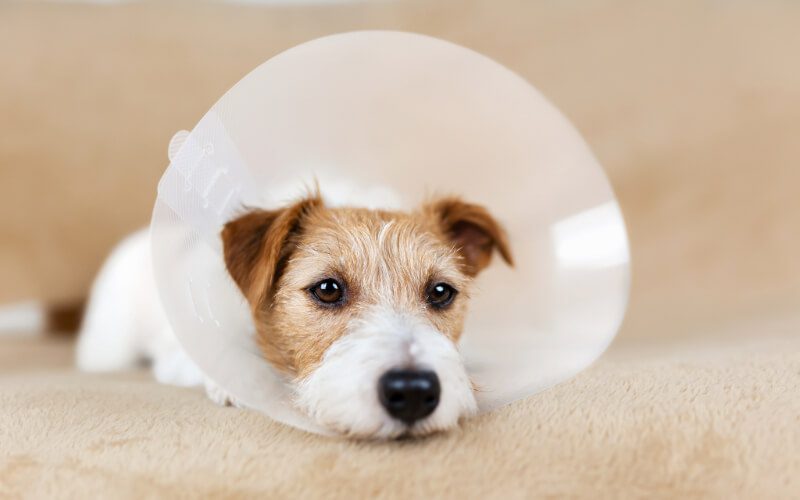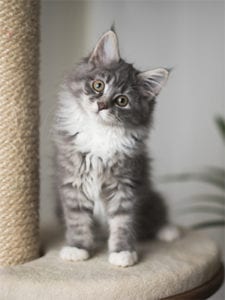An Honest Look at Spay/Neuter Surgery & Its Costs

A common question pet parents ask us is “When do I fix my dog or cat?” Fixing refers to spays (females) and neuters (males). Neutering is a surgical procedure that removes the male’s testicles. Spaying is a hysterectomy where we remove the female’s uterus and ovaries. Both spay and neuter procedures are routinely performed when a dog or cat reaches six months of age.
The Importance of Timing for Females
For females, it is particularly important to spay them before their first heat cycle. Similar to people, estrogen is the trigger for breast cancer in animals. By limiting an animal’s production of estrogen with a spay, we reduce their likelihood of developing breast cancer by a whopping 95%! If you allow a dog or cat to go through just three heat cycles, there seems to be no difference in the incidence of cancer.
Questions to Ask When Choosing a Spay/Neuter Facility
In the Lafayette area, you have many spay/neuter facilities to choose from. When picking the right place, ask several questions to ensure your pet is getting the best possible care. Common questions to ask include:
- Is there a dedicated nurse to monitor my pet before, during, and after the surgery?
- Do you use injectable and gas anesthesia during the procedure?
- What steps do you take before, during, and after the procedure to make sure my pet experiences minimal pain?
- What steps do you take to minimize my pet’s stress?
- Do you take steps to minimize my stress about the procedure?
- Who should I call if I have a post-operative complication or question in the days following the procedure?
- Is there an extra cost to remove my pet’s stitches?
- Where will I go to remove my pet’s stitches and do I need an appointment?
These should give you an idea of what to expect for your pet’s procedure, your experience, and post-operative support.
 Other Aspects to Consider
Other Aspects to Consider
Every pet undergoing an anesthetic procedure should have extensive monitoring during their surgery. This should include blood pressure, pulse oximetry, temperature, and EKG. Every animal undergoing a surgical procedure such as spaying, neutering, dental cleanings, soft tissue surgeries and orthopedic procedures should also receive intravenous fluids. Intravenous fluids are important to maintain hydration status and normal blood pressure. They also help excrete the anesthetic out of the body. Pets should also have an approved heating device used to maintain their core body temperature. This is needed during the procedure and through their recovery.
The Low-Down on Low-Cost Clinics
Being budget minded is always important. However, certain cost cutting measures taken during surgery can endanger a pet’s life. Before trusting a low-cost veterinary facility, ask them why their costs are lower. Be sure to also ask what measures they do take to ensure your pet’s safety.
Most low-cost spay and neuter facilities are not intentionally cutting costs to put pets in danger. In fact, many of these facilities strive to control pet overpopulation by sterilizing as many animals as possible. In these facilities, many unowned animals that may not be up to date with their vaccines are often brought in and placed next to your pet. This can be stressful for your pet. There is also a higher change for the spread of disease. Furthermore, in order for low-cost clinics to meet the demand placed on them, they must perform up to 20 – 30 procedures in one day. This limits the staff’s ability to properly care for each pet.
Choose a Better, Safer Experience for Your Pet
At Animal Care Hospital, we recognize that your pet is family — and we treat them as such. We opt to raise our quality of service, rather than cut costs and put pets in danger. Here’s why choosing us is the best decision you can make:
- We place quality over quantity. At Animal Care Hospital, we only perform 2 to 3 procedures in one day to ensure that each pet receives adequate care before, during, and after the procedure.
- We’re with your pet from start to finish. Each pet is within eyesight of a doctor and a nurse through their recovery from anesthesia until he or she is standing up.
- You get the best care at an affordable cost. The costs incurred for your pet’s individualized care, stress reduction, pain management, and excellent surgical care is a one-time cost. We do not charge extra to remove your pet’s sutures. We also do not charge for post-operative consultations or exams should your pet need it.
Pet parents who receive surgical quotes from Animal Care Hospital are often surprised to find how much less expensive the quotes are than they expected. Call one of our professionally trained staff members to receive a quote for your pet’s spay or neuter procedure. We will be happy to discuss the health of your pet and answer all of your questions.


 Other Aspects to Consider
Other Aspects to Consider